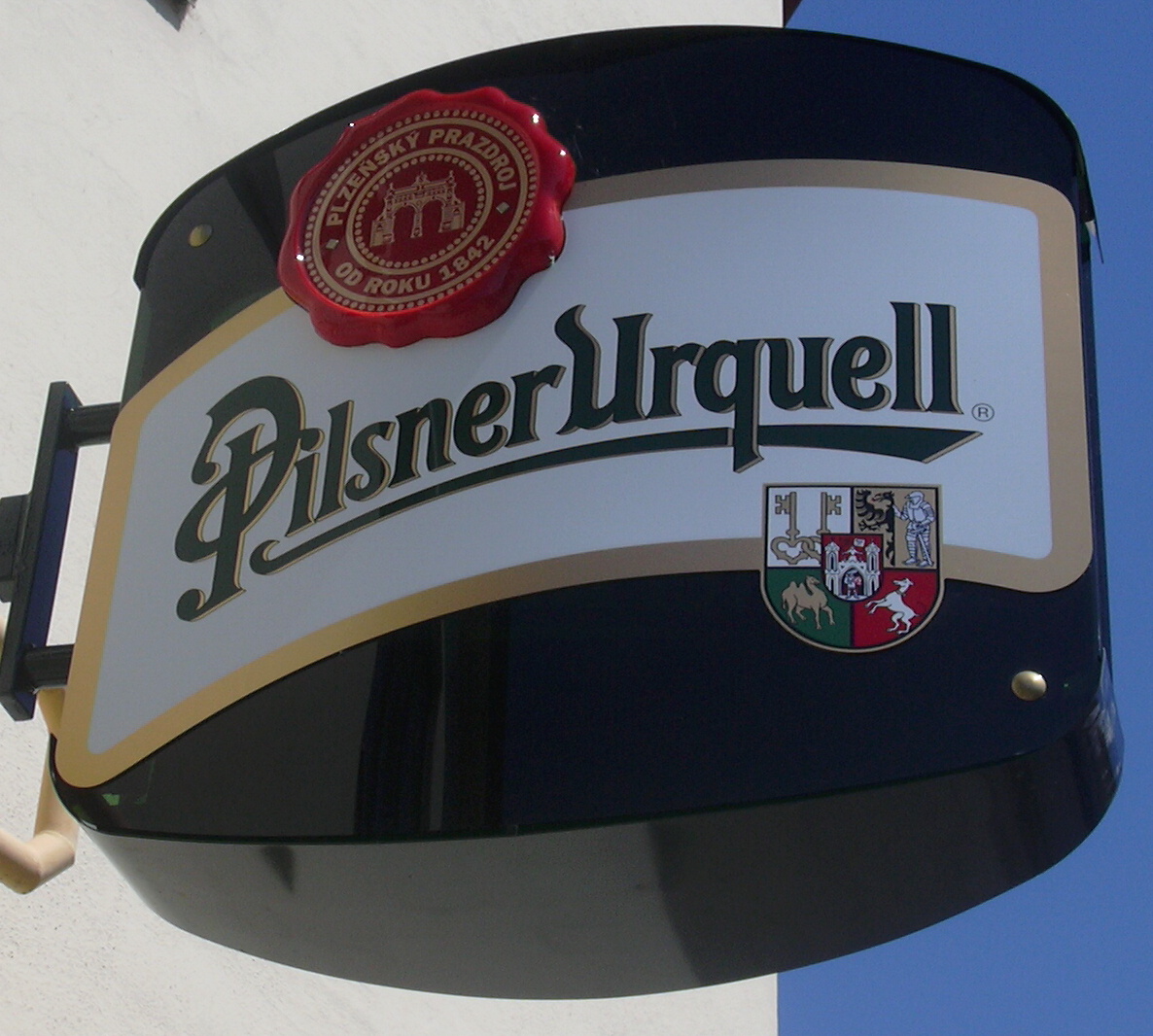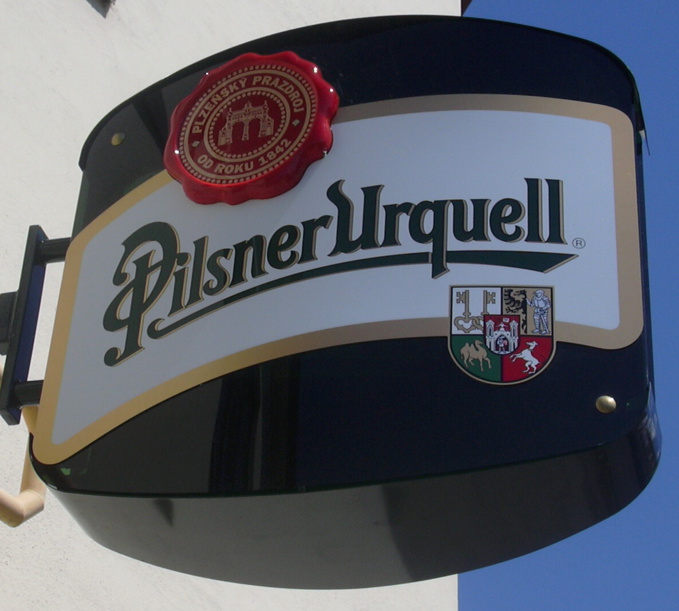Belgian company Anheuser-Busch InBev has completed the first round of applications for purchase some of its beer brands sold under the merger deal with British SABMiller. Namely, Anheuser-Busch InBev intends to sell brands such as Pilsner Urquell, Tyskie, Lech. Total value of assets for sale is over € 5 billion.
Preliminary bids for purchase of beer brands were made by Japanese brewer Asahi Holdings, which may be interested in expanding its presence in the European market, and by Czech PPF Group investment company. One application is made by a consortium of Hungarian energy company Mol, Polish manufacturer of juices Maspex Wadowice Group and insurance company PZU Group. In addition, Anheuser-Busch InBev received applications from private investment companies Bain Capital, Advent, KKR and Mid Europa Partners.
Private investment companies want to capitalize on the growing markets of Poland and the Czech Republic, where demand for alcohol products remains high. The sixth application came from a consortium with participation of Swiss investment company Jacobs Holding and Canadian pension fund PSP Investments. European private investment company BC Partners, which also considered buying assets of Anheuser-Busch InBev, decided not to participate in the call for proposals.
According to Reuters’ sources, the second round of accepting applications from potential buyers in scheduled for December.
For many years, AB InBev (Bud, Stella Artois, Becks) and SABMiller (Miller, Pilsner Urquel, Grolsch) fought for the palm in the world beer market. However, when Belgian InBev had acquired for $ 52 billion American Anheuser-Busch in 2008, and SABMiller had refused to buy Dutch Heineken, AB InBev became an undisputed leader.
The deal with SABMiller made AB InBev one of the world's largest beverage manufacturers, ahead of Coca-Cola in terms of revenue. «AB InBev needed the deal, commented Liberum analyst Alice Forry. - Forecasts for growth of the company's profits were questionable, level of sales in the US - low, the Brazilian market has grown slowly, and synergies from previous mergers had dried up" - she lists.
Now, the main goal of AB InBev is to get rid of more than $ 100 billion in debt, which is 4.5 times higher than EBIDTA of the company for 2015, Liberum’s analysts note. However, despite the large debts, rating agency Moody's is still keeping a high credit rating of AB InBev.
Until now, AB InBev mainly absorbed companies operating in the local markets. That is why SABMiller, present in 70 countries, was the largest piece of cake for AB InBev. Liberum’s analysts are certain that the deal can create administrative difficulties for AB InBev. Robert Ottenstein from Evercore ISI believes that SABMiller management can face a real challenge with AB InBev, which has no similar experience in managing companies.
According to cutting-costs policy, AB InBev will axe about 5,500 jobs, or 3% of total number of employees of the merged company. AB InBev is also going to optimize costs by closing regional offices, reduce purchase cost of raw materials and packaging, says FT.
source: reuters.com, ft.com
Preliminary bids for purchase of beer brands were made by Japanese brewer Asahi Holdings, which may be interested in expanding its presence in the European market, and by Czech PPF Group investment company. One application is made by a consortium of Hungarian energy company Mol, Polish manufacturer of juices Maspex Wadowice Group and insurance company PZU Group. In addition, Anheuser-Busch InBev received applications from private investment companies Bain Capital, Advent, KKR and Mid Europa Partners.
Private investment companies want to capitalize on the growing markets of Poland and the Czech Republic, where demand for alcohol products remains high. The sixth application came from a consortium with participation of Swiss investment company Jacobs Holding and Canadian pension fund PSP Investments. European private investment company BC Partners, which also considered buying assets of Anheuser-Busch InBev, decided not to participate in the call for proposals.
According to Reuters’ sources, the second round of accepting applications from potential buyers in scheduled for December.
For many years, AB InBev (Bud, Stella Artois, Becks) and SABMiller (Miller, Pilsner Urquel, Grolsch) fought for the palm in the world beer market. However, when Belgian InBev had acquired for $ 52 billion American Anheuser-Busch in 2008, and SABMiller had refused to buy Dutch Heineken, AB InBev became an undisputed leader.
The deal with SABMiller made AB InBev one of the world's largest beverage manufacturers, ahead of Coca-Cola in terms of revenue. «AB InBev needed the deal, commented Liberum analyst Alice Forry. - Forecasts for growth of the company's profits were questionable, level of sales in the US - low, the Brazilian market has grown slowly, and synergies from previous mergers had dried up" - she lists.
Now, the main goal of AB InBev is to get rid of more than $ 100 billion in debt, which is 4.5 times higher than EBIDTA of the company for 2015, Liberum’s analysts note. However, despite the large debts, rating agency Moody's is still keeping a high credit rating of AB InBev.
Until now, AB InBev mainly absorbed companies operating in the local markets. That is why SABMiller, present in 70 countries, was the largest piece of cake for AB InBev. Liberum’s analysts are certain that the deal can create administrative difficulties for AB InBev. Robert Ottenstein from Evercore ISI believes that SABMiller management can face a real challenge with AB InBev, which has no similar experience in managing companies.
According to cutting-costs policy, AB InBev will axe about 5,500 jobs, or 3% of total number of employees of the merged company. AB InBev is also going to optimize costs by closing regional offices, reduce purchase cost of raw materials and packaging, says FT.
source: reuters.com, ft.com



















